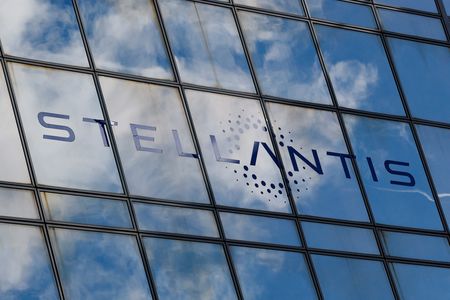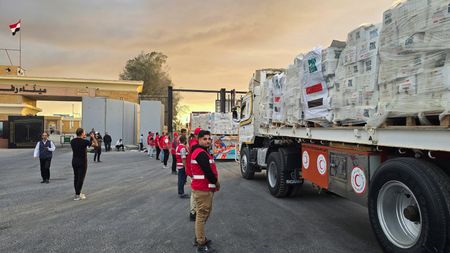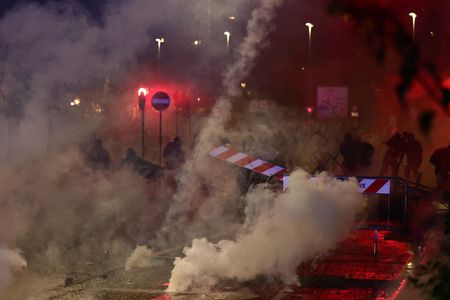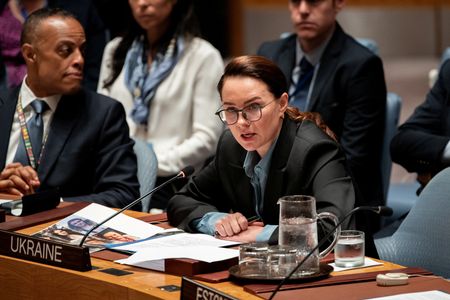By Nora Eckert and Nathan Gomes
(Reuters) -Stellantis announced a $13 billion investment in the U.S. on Tuesday, a move it said will bring five new models to the market and add 5,000 jobs in plants across the Midwest over the next four years.
The plan, which includes some previously disclosed investments, may help buffer Stellantis from U.S. President Donald Trump’s tariffs, which the automaker has said would cost it around $1.7 billion this year.
The investment, which Stellantis CEO Antonio Filosa said is the largest in its history, comes as the automaker works to regain its sales momentum in one of its most important markets.
“Tariffs are getting clearer and clearer. And we believe that tariffs will be just another variable of our business equation that we need to be ready to manage, and we will,” Filosa told Reuters in an interview.
U.S.-listed shares of Stellantis were up about 4% in after-hours trade.
The investment will infuse new capital into plants in Michigan, Illinois, Ohio and Indiana. Some of the factories are slated to receive new models, while others will have expanded production of existing vehicles.
One of the plants at the center of the company’s announcement, a factory in Belvidere, Illinois, has been a sticking point for the United Auto Workers union, which last year threatened a strike against the Franco-Italian automaker.
“Their decision today proves that targeted auto tariffs can, in fact, bring back thousands of good union jobs to the U.S.,” UAW President Shawn Fain said in a statement.
The factory, which was shuttered in 2023, is reopening and will produce two Jeep models starting in 2027, creating around 3,300 jobs, the company said.
“Filling Stellantis’ underutilized plants should be a welcome announcement for UAW workers,” said Sam Fiorani, vice president at research firm AutoForecast Solutions.
Stellantis leadership disclosed elements of the plan to employees earlier this year, including some of the investments in the Belvidere plant, and factories in Ohio and Indiana.
Tuesday’s announcement pegs the investment amount and the number of jobs that will be created, which is a larger figure than had been previously given. The company declined to quantify how much of the $13 billion announcement was previously laid out.
Filosa, who became CEO in June, is tasked with turning around the carmaker’s sagging U.S. market share. Dealers complained that the company’s strategy under former CEO Carlos Tavares left them with models that were priced too high relative to competitors, and hurt sales.
Tavares abruptly resigned in December, and the automaker conducted a months-long search for his successor before appointing Filosa, an Italian national who joined the company in 1999.
Filosa is expected to unveil a new strategic plan in the second quarter of next year, after recently delaying it from the first quarter.
(Reporting by Nora Eckert in Detroit; Additional reporting by Nathan Gomes in Bengaluru; Editing by Lisa Shumaker and Christopher Cushing)











